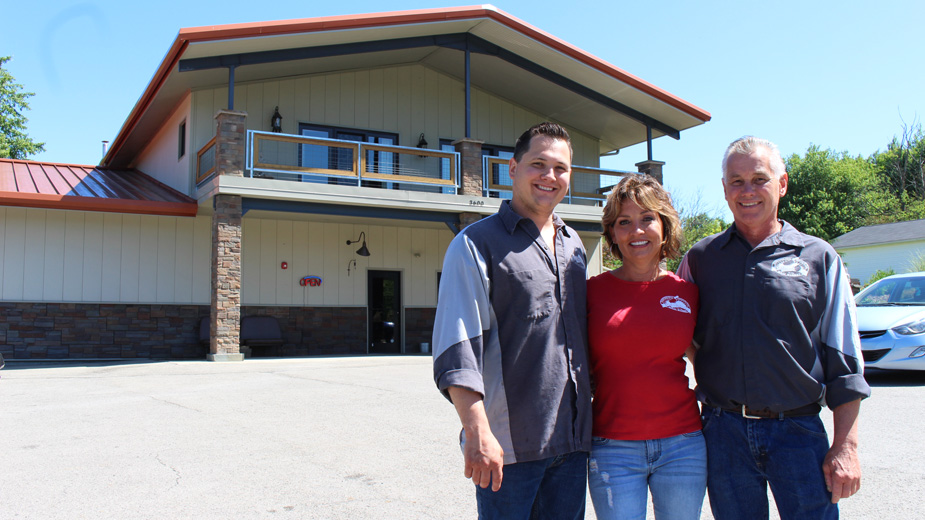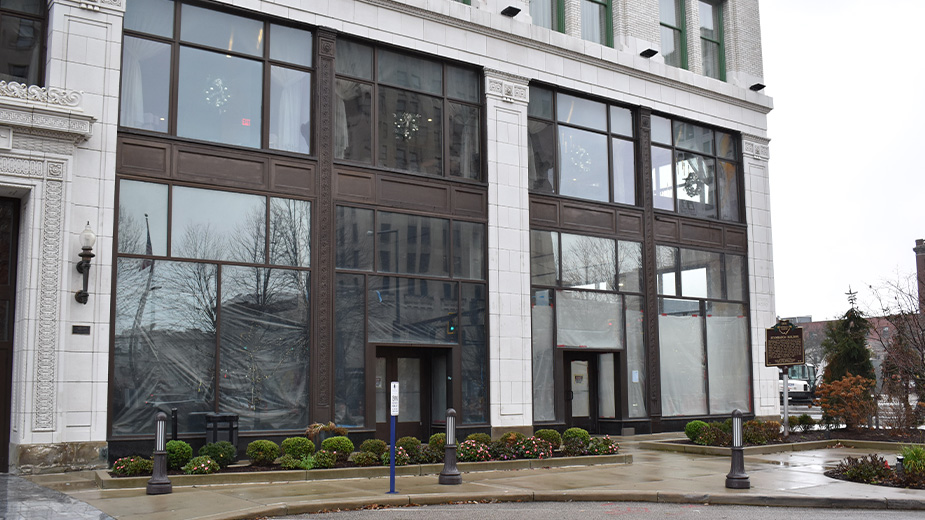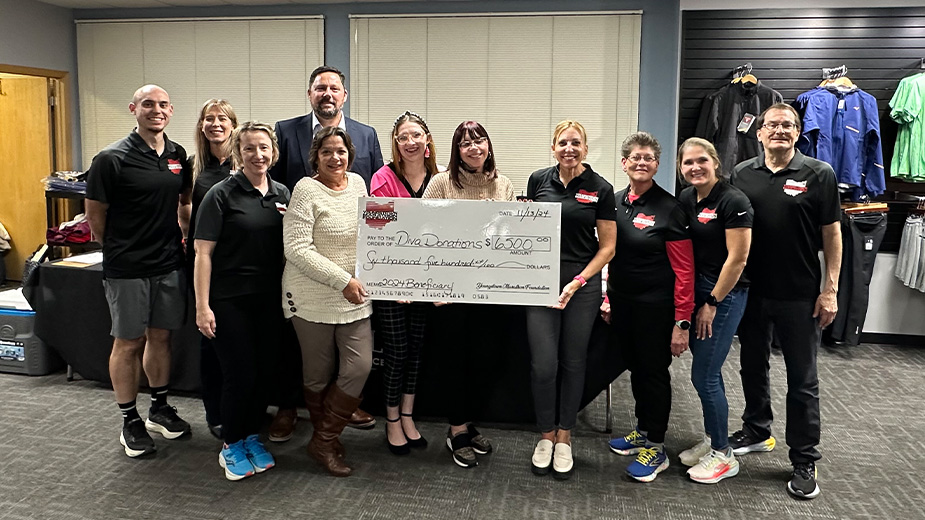Palumbo’s Meat Market Grows Back from the Ashes
WEST MIDDLESEX, Pa. – Around 4:30 a.m. seven years ago, three generations of family history nearly came to an end.
“We stood out here and just watched our whole life go up in flames,” recalls Debra Palumbo.
Palumbo and her husband, Keith, built Palumbo’s Meat Market in West Middlesex, Pennsylvania, in 1992. Business was going so well that they invested in an extensive renovation in 2010, making the timing of the electrical fire all the more devastating.
Worse still: they lived upstairs.
“We didn’t even have a toothbrush. We didn’t have jobs,” she recalls. “I couldn’t even go buy a toothbrush.”
The fire started so quickly Palumbo didn’t have time to save her wedding ring. Her only possessions that weren’t destroyed were the clothes she was wearing and a pair of earrings, which she makes sure to wear regularly.
The building was a total loss, so for a time the Palumbos lived in a camper in the backyard, “which was lovely in the winter,” she says with a laugh.
But even as their life’s work was still burning, Keith Palumbo knew it wasn’t the end.
“I knew that I was coming back. I wasn’t ready to quit,” he says.
Debra Palumbo says they fought with insurance companies for a year before their claim went through. Then they emptied their savings, “sold some stuff, did whatever we had to do,” to bring the business back.
Two years after the fire, the building was completely rebuilt – including their home above it – and Palumbo’s was open once again.
Keith Palumbo says it was a desire to preserve his family’s legacy that provided the motivation he needed to overcome the devastating setback.
“My grandfather started this business in 1927, so we have a long family history in this business,” he says.
His father and all of his uncles worked in the store and his uncle still runs the original location in DuBois while his father runs a second location in Reynoldsville.
“I worked for my father until I was 32 years old and then I went out on my own,” says Keith Palumbo.
He can usually be found in the meat-cutting room working alongside the fourth generation: his son, Jode.
Through windows behind the counter you can watch the two at work from the display room.
Jode Palumbo is busy cutting a beef tip roast off the leg quarter. He says he’s been “scraping steaks since he was 10 years old.”
“He’d stand on a milk crate and pretend he was cutting,” his mother says with a smile.
Today he’s an integral part of the family business. Jode Palumbo runs Palumbo’s slaughterhouse in Sandy Lake, where all of their beef and hogs are processed. Certified by the U.S. Department of Agriculture as a humane handler, Palumbo’s typically processes 10 cattle and 20 hogs every week.
The relatively small number of carcasses Palumbo’s handles makes it easier for the inspector to monitor everything compared to some of the bigger operations, he says. In some cases there may be one inspector for every 1,000 carcasses. “I have one for every 10,” he says.
The cattle are usually purchased at the New Wilmington Livestock Auction and all are raised at local farms.
“We do all local,” says the son, emphasizing the word “all.”
“Everything,” he adds, so there’s no misunderstanding.
When asked how he and his father know which beef are best, he jokes, “just by the generations of experience.”
When pressed further, Keith Palumbo reveals a few secrets.
“It’s by their form,” he says. “They’re square, the back’s flat. You can tell they have brisket fat but not too much fat.”
The elder Palumbo says 90% of what they purchase is Black Angus beef and that all are antibiotic free.
The cattle are grass-fed until a certain age and then finished with grain, Jode Palumbo says, because “grass-fed cattle are typically older than grain-fed cattle” when they’re slaughtered because they take longer to develop fat.
This means the cattle are “tougher and more prone to disease,” he says.
Once the Palumbos purchase an animal, its journey to the dinner table is pretty short.
“We buy on Monday. We slaughter on Tuesday and we bring it here Tuesday afternoon,” Debra Palumbo explains.
Hanging in the cooler next to the meat cutting room you’ll find whole pigs, sides of beef and just about every other type of meat you can think of. The Palumbos sell and utilize every part of the animal. “Everything from tongue to tail,” she says.
Jode Palumbo even makes chitlins from the pig intestines. “They’re good if you do them right,” he says laughing.
Every piece of meat is hand-cut and the leftovers are used for products such as hamburgers and hot dogs.
All the hot dogs are smoked and made in-house. Behind the cash register and through a window you can see dozens of salami curing on a rack. Like everything else here, all the ingredients come from the Palumbos’ animals.
In fact just about everything you see in their display case – sausage, pepperoni, bacon – is homemade, even the deli meat.
“If you come in and buy sliced ham, you’re going to get Palumbo ham,” says Debra Palumbo.
The only items in the display cases the Palumbos don’t make themselves are the cheeses.
In addition to beef and pork Palumbo’s sells chicken, turkey, lamb, and even the occasional goat.
“We can get you rabbits, whatever you want,” she says.
Palumbo’s also gets fresh fish shipped in every Tuesday.
The business that almost met its end is a much larger enterprise than what Debra and Keith envisioned when they opened it 25 years ago.
“We were a small family-owned business, like a mom and pop shop. That’s what we thought we were going to be,” recalls Debra Palumbo. “But then it grew and it grew.”
Today Palumbo’s employs 15.
And while he’s not officially on the payroll, Jode’s son, the fifth generation, is already starting to help out.
“He’s eight and he’s making salami,” Jode says with a proud grin.
Pictured: Jode and his parents, Debra and Keith Palumbo, operate Palumbo’s Meat Market.
Copyright 2024 The Business Journal, Youngstown, Ohio.



